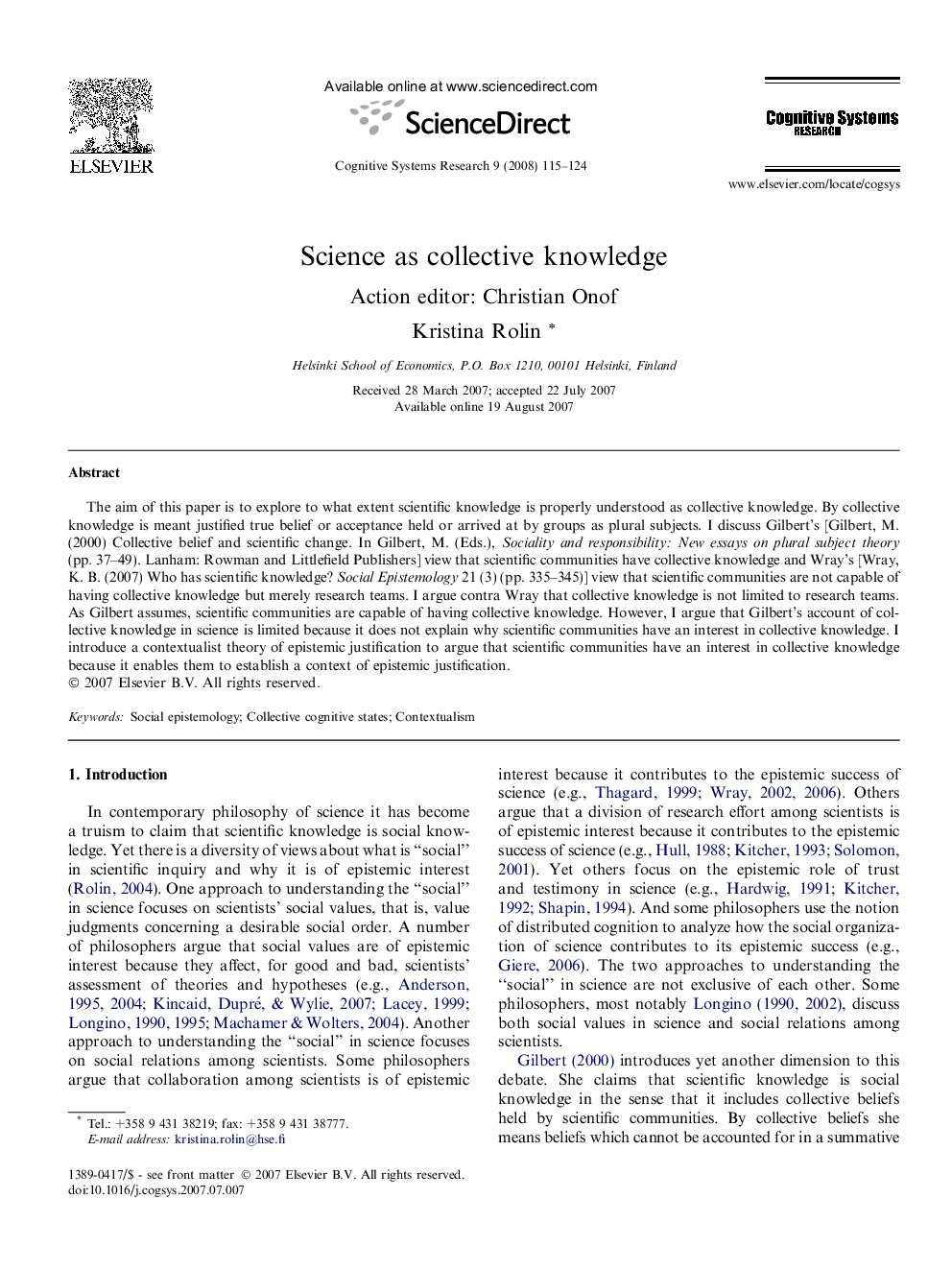| Article ID | Journal | Published Year | Pages | File Type |
|---|---|---|---|---|
| 378647 | Cognitive Systems Research | 2008 | 10 Pages |
The aim of this paper is to explore to what extent scientific knowledge is properly understood as collective knowledge. By collective knowledge is meant justified true belief or acceptance held or arrived at by groups as plural subjects. I discuss Gilbert’s [Gilbert, M. (2000) Collective belief and scientific change. In Gilbert, M. (Eds.), Sociality and responsibility: New essays on plural subject theory (pp. 37–49). Lanham: Rowman and Littlefield Publishers] view that scientific communities have collective knowledge and Wray’s [Wray, K. B. (2007) Who has scientific knowledge? Social Epistemology 21 (3) (pp. 335–345)] view that scientific communities are not capable of having collective knowledge but merely research teams. I argue contra Wray that collective knowledge is not limited to research teams. As Gilbert assumes, scientific communities are capable of having collective knowledge. However, I argue that Gilbert’s account of collective knowledge in science is limited because it does not explain why scientific communities have an interest in collective knowledge. I introduce a contextualist theory of epistemic justification to argue that scientific communities have an interest in collective knowledge because it enables them to establish a context of epistemic justification.
